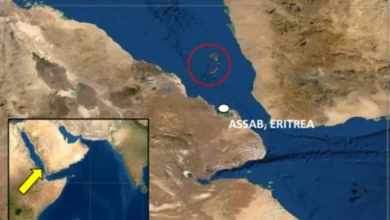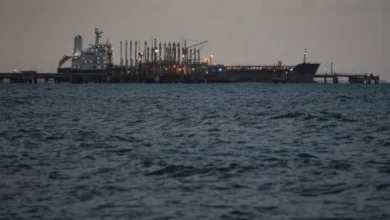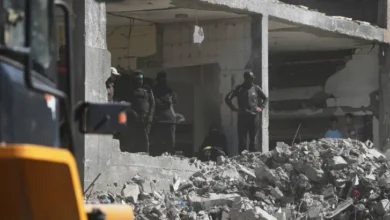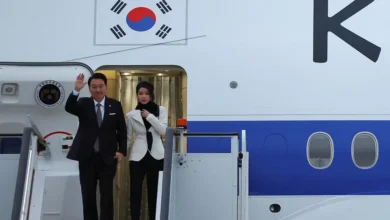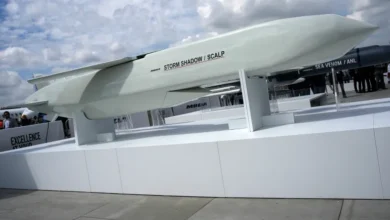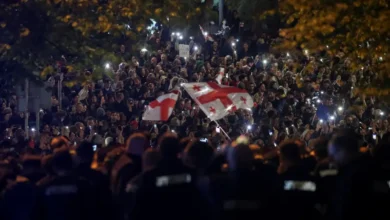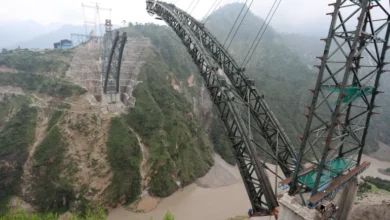Has the war on Gaza hurt Israel’s economy?
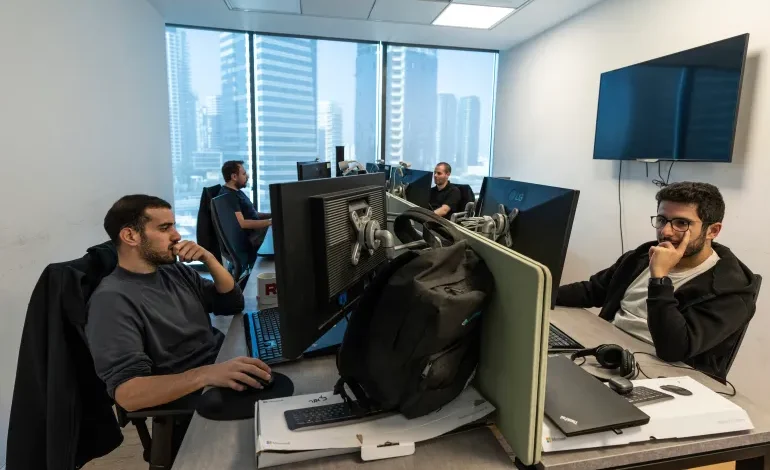
Israel’s war on Gaza, now well into its fourth month, has taken a toll on its own economy with many industries pausing business even as a few continue to get new investments.
Since October, Israel’s government has subsidised the salaries of reportedly 360,000 mobilised reservists deployed to Gaza – many of whom are high-tech industry workers in finance, artificial intelligence, pharmaceuticals and agriculture.
In November, the Bank of Israel put the war’s “gross effects” on Israel at 198 billion shekels ($53bn) and pared back its estimates for economic growth to 2 percent per year for 2023 and 2024, down from 2.3 percent and 2.8 percent.
In December, Israel’s Finance Ministry said that the war will likely cost Israel approximately $13.8bn this year if its high-intensity phase concludes during the first quarter of 2024.
In the midst of that, experts are watching to see how business is doing on the ground.
One of the industries that have continued to do well is the high-tech sector, its fastest-growing area for several years, which today accounts for close to 20 percent of the country’s gross domestic product (GDP) and 14 percent of jobs.
Since the Israeli start-up scene exploded in the 1990s, Israel has established itself as the largest tech centre in the world, second only to Silicon Valley. More than 500 multinational corporations – from Google to Apple, IBM to Meta, and Microsoft to Intel Corp – operate in Israel.
And while there are concerns if companies would continue investing in a nation at war, for the moment at least, there’s no evidence to say that’s a real threat.
Within one week of October 7, more than 220 venture capital firms, including Bain Capital Ventures, 8VC, Bessemer Venture Partners, and GGV Capital, signed a public statement to express solidarity with Israel and called on investors worldwide to continue to support its tech ecosystem.
From December 17-20, dozens of senior executives from US-based venture capital, tech and private equity firms took part in the Israel Tech Mission, entailing meetings in Jerusalem and Tel Aviv between these executives and top Israeli government officials. Essentially, it was a high-profile delegation showing the Israeli tech sector support amid this war.
Ron Miasnik is an investor for Bain Capital Ventures who co-organised the Israel Tech Mission with David Siegel, the CEO of Meetup.com.
“We are longtime investors in the Israeli startup ecosystem, and have made it a priority to visit the region and meet with teams there to continue to support stability and economic prosperity in the area,” Miasnik told Al Jazeera. “In the long term, we believe in the resilience of the Israeli startup ecosystem and are committed to not only continuing but deepening our focus on the area,” he added.
Hillel Fuld, a tech columnist and startup adviser based in Beit Shemesh, Israel, pointed out that in December, US chipmaker Intel Corp confirmed its plans to build a $25bn chipmaking factory in southern Israel – a development hailed by Netanyahu as the “largest investment ever” in Israeli history. With a $3.2bn grant from the Israeli government, Intel’s planned investment is a big boost to Israel’s tech sector amid this war.
In the final quarter of last year, Israeli startups managed to raise $1.5bn and “out of those deals, high-risk ‘seed’ funding was $220m in 31 rounds”, Fuld said.
Palo Alto Networks, a Santa Clara, California-headquartered multinational cybersecurity company founded by American-Israeli entrepreneur Nir Zuk, has a history of acquisitions in Israel. On October 29, it acquired Dig Security for roughly $300m, then it acquired Talon Cyber Security for $615m.
But the picture is slightly mixed, said Benjamin Bental, a principal researcher and economics policy programme chair at the Jerusalem-based Taub Center for Social Policy Studies. “When one looks at the number of players, one sees a decline. When one looks at the sums invested, one sees basically stability, meaning that those who stay invest more,” he said.
Israeli officials face the challenge of needing to restore confidence and a sense of security – which will not prove easy – to boost investments.
“Beyond a clear military and political outcome both in the Gaza Strip and along the Lebanese border, and a repatriation of the hostages, this requires a clear and goal-oriented economic policy. It is not yet clear how this will eventually be addressed,” Bental told Al Jazeera.
Tens of thousands of people have been displaced in the last few weeks on both sides of the Israel-Lebanon border as Israeli troops and Hezbollah fighters have fired missiles at each other.
